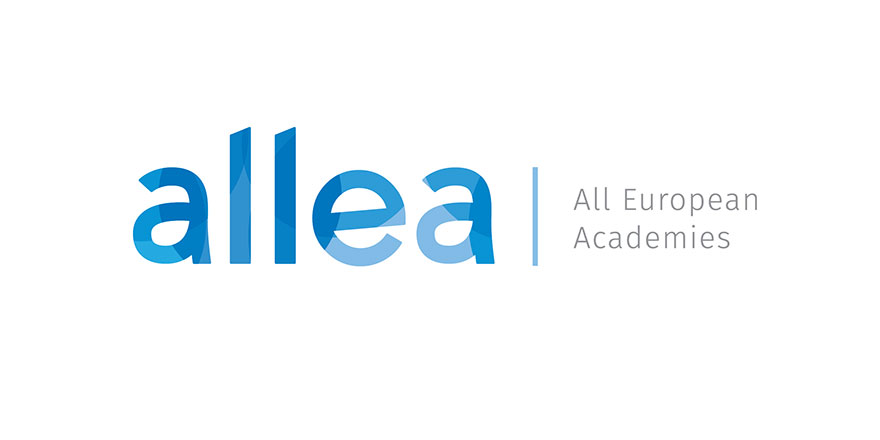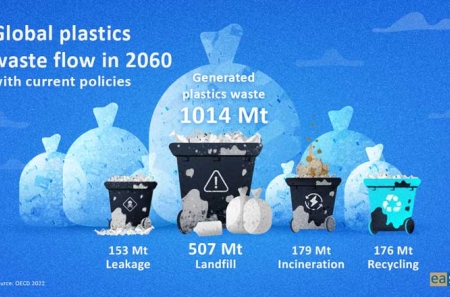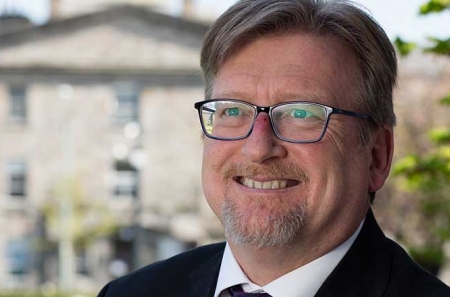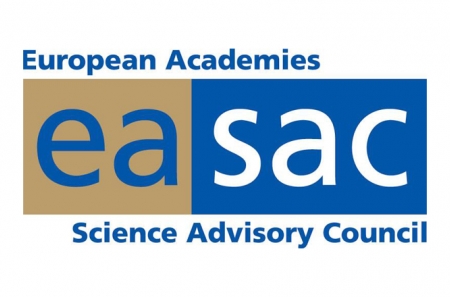
Call for participation: ALLEA project on climate sustainability in the academic system
24 March 2021ALLEA welcomes nominations from the natural sciences, social sciences, and the humanities.
Climate change, caused by humans, threatens the very basis of our current existence. Academics have an extraordinarily large CO2 footprint. Our travel habits, scientific experiments and (super)computing contribute to an unsustainable level of carbon emissions in the academic sector. To give an example, a single return flight from Frankfurt to New York leads to 2.5 tons of emitted CO2. The IPCC estimates the total remaining amount of carbon emission, before irreversible consequences occur, to be only about 500 Gigatonnes. This corresponds to about 1.8 tons of CO2 per person and year until the year 2050
To meet climate goals will require major systemic changes in all areas of industry and society, including academia. Even though the actual contribution of academic activities to global CO2 emissions is relatively small, we have a clear moral duty to become more sustainable and we risk being accused of hypocrisy when we warn of the dangers of climate change if we do not act to get our own house in order.
At the same time, academia thrives on global exchange and networks. Thus, viable solutions to the sustainability challenge have to carefully consider the needs arising from reconciling sustainability with global academic exchange and international networks.
Key players in the academic landscape are starting to acknowledge this reality. National funding agencies start to consider the carbon cost of research; and recommendations for a more sustainable travel culture are being discussed. In addition, a social-justice component of a change in travel culture has become apparent, in that online formats enable participation of researchers from the global south, who are often de-facto excluded from in-person meetings.
The ALLEA project on climate sustainability in the academic system seeks to develop a proposal for a sustainable transformation of academia that is based on deliberations, balanced, and takes into account all relevant perspectives, with a particular focus on academic travel culture. This requires facing the challenge of a climate sustainable academia without compromising excellence in research and without diminishing international exchange and collaboration in academia. ALLEA will develop this proposal throughout various stakeholder-hearings and working group meetings in the coming months.
This ALLEA project will be led by Die Junge Akademie. As the proposal aims to represent the diverse scientific landscape, diverse participation is sought, where dimensions of diversity include, but are not limited to discipline, gender, geographic distribution, scientific seniority and role, personal view of and experience with online formats and sustainability initiatives
Expressions of interest are invited in two categories:
- Members of a core working group, who can come from any discipline, and are highly motivated to contribute to the project. The expected workload will be around two online meetings per month of 1-2 hours each and individual work packages of a similar amount. Outputs of the working group will be decided by the working group, but could be a set of two documents, first a careful analysis of the data regarding the climate impact of academia, second, if, based on this analysis a clear need for recommendations is identified, a set of recommendations that could, e.g., take the form of a code of conduct or a set of principles, both for individuals as well as for institutions and policymakers.
- Members of a consulting panel who will be called on to join typically one or two of the meetings of the core working group to provide their input based on their expertise.
Disciplines welcomed include but are not limited to:
- climate science
- climate regulation/policy/law
- economics
- regional studies and anthropology to bring perspectives from regions outside Europe to bear
- sociology and sociology of sciences
- psychology, communication studies to explore challenges of online formats and understand how to set incentives for a change in travel culture
- computer science, to deliberate the energy costs of (high-performance) computing and develop
- incentives for a change towards sustainability
- natural sciences with a strong experimental component, to deliberate the specific challenges of a
- sustainable transformation without compromising research excellence in energy- and resource intensive experiments
- medical sciences and public health experts
- all other disciplines are also welcomed. Members from other disciplines are asked to specify in their motivation letter how their expertise can benefit the project.
For the core working group, an extended motivational letter of max. 2 pages and a CV should be submitted. For the consulting panel a shorter (max. 1 page) motivational letter detailing your specific relevant expertise and a CV should be submitted. To ensure a balanced distribution of subjects, ALLEA welcomes nominations from the natural sciences, social sciences, and the humanities.
To express an interest in being nominated to the ALLEA project by the Royal Irish Academy, please specify which category you are applying for and submit the appropriate documents to policy@ria.ie by midday on Friday 2 April 2021.
This opportunity is publicly advertised by the Royal Irish Academy.
All expressions of interest received will be considered by the Academy’s Policy Oversight Group - the unit tasked with advising upon the initiation and implementation of all of the Academy’s policy and international activities and responsible for overseeing a standardised quality process for all outputs. Chaired by the Academy’s Secretary of Policy and International Relations, the six members of this group are all elected Members of the Royal Irish Academy and come from a variety of disciplinary backgrounds in several institutions across the island of Ireland- both north and south of the border. On occasions, the Policy Oversight Group may also consult additional experts to inform their assessments and evaluations.
The Royal Irish Academy values diversity and strives for a culture of equality and inclusion in all of its activities. As outlined in its Strategic Plan 2019-2023, the Academy is committed to ensuring greater gender, disciplinary, institutional and overall diversity in every area of the Academy and its work throughout the island of Ireland. It particularly welcomes nominations from under-represented groups and communities.
ALLEA
ALLEA is the European Federation of Academies of Sciences and Humanities, representing more than 50 academies from over 40 EU and non-EU countries. Since its foundation in 1994, ALLEA speaks out on behalf of its members on the European and international stages, promotes science as a global public good, and facilitates scientific collaboration across borders and disciplines.
Please refer to the Privacy Notice for Policy and International Relations, the RIA's Privacy page, for any further information on our data protection practices please email dataprotection@ria.ie



